Main Menu
We’ve rebranded some of our products, learn more ›
CODEX® is now PhenoCycler,
Phenoptics™ is now Phenolmager.
Spatial Biomarkers in Immuno-Oncology: Recent Developments and Future Directions
Webinar Series: October 6-27, 2021
Recent developments in the study of spatial biomarkers continue to demonstrate the predictive power of this new class of biomarker assays. Watch this four-part webinar series to learn how researchers are pioneering new strategies representing significant milestones that advance spatial biology into the realm of patient phenotyping and improving immunotherapy outcomes in the future. The use of multiplex immunofluorescence (mIF) technologies such as Akoya’s PhenoImager™ platform (formerly Phenoptics™), has enabled researchers to continue to reveal the power of spatial phenotypic signatures in advancing the path for more effective drug development from clinical trial design through standardization. Hear from our expert panel on recent developments that establishes the vital role of spatial biomarkers in setting the future directions in achieving precision immuno-oncology.
I-SPY 2 Trial Innovations: Clinical Trial Design and the Use of Spatial Biomarkers
The I-SPY 2 (investigation of serial studies to predict your therapeutic response with imaging and molecular analysis) is an adaptive clinical trial platform that supports the rapid, focused clinical development of paired oncologic therapies and biomarkers. The goal is to identify improved treatment regimens based on the molecular characteristics of individual patients’ disease.
In this webinar, Dr. Laura Esserman and Dr. Michael Campbell discuss the I-SPY 2 trial of neoadjuvant treatment for locally advanced breast cancer. The trial involved the use of mIF-based biomarker panels, developed with the PhenoImager platform, to map the heterogeneity of the tumor microenvironment.
Drs. Esserman and Campbell have standardized biomarker discovery and development efforts on the PhenoImager platform to measure as many as six markers at a time on a single pathology slide using mIF. They discuss how I-SPY 2 has the potential to significantly accelerate the time to get effective treatments to the patients who will benefit, while also reducing the cost of drug development.
In this talk, attendees will:
- Learn how the I-SPY 2 trial’s innovative adaptive trial design has accelerated the pace of new drug development in oncology through improved clinical trials and biomarker use for breast cancer.
- Understand the value of spatial biomarkers and their use in the I-SPY trials to serve as predictors of response to immuno-oncology drug combinations.
- Learn how fundamental innovations deriving from the I-SPY 2 trial are improving clinical trials and patient care on many levels and how a number of these advances have become best practices.
Video
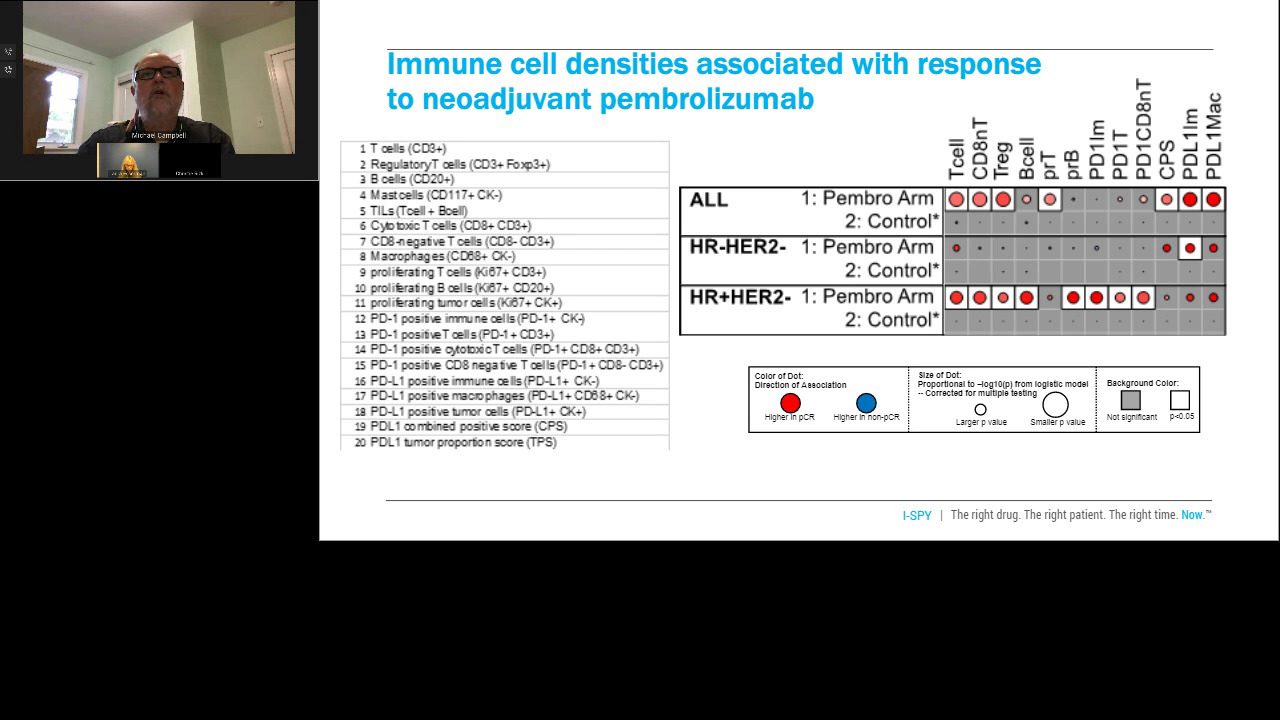
Speakers

Laura Esserman, MD, MBA
Professor of Surgery and Radiology, University of California, San Francisco Director of the UCSF Carol Franc Buck Breast Care Center

Michael Campbell, PhD
Professor, Division of Surgical Oncology, University of California, San Francisco
MITRE Study: Standardizing Spatial Phenotyping and Biomarker Analysis with Multiplexed Immunofluorescence in Immuno-Oncology
In this webinar, Dr. Bernard Fox and Elizabeth Engle discuss the results of the Multi-Institutional TSA-amplified Multiplexed Immunofluorescence Reproducibility Evaluation (MITRE Study), published in the Journal for ImmunoTherapy of Cancer (JITC) in July 2021. The MITRE study is the first multi-institutional study involving mIF designed to develop and validate a spatial biology workflow that is transferable among sites and delivers site-independent and reliable quantitative data for immunotherapy research. The MITRE results are an important step toward standardizing an automated mIF-based spatial biology workflow that provides the level of performance needed to support clinical trials and that can be applied to clinical testing in the future.
In this talk, attendees will:
- Review evidence that evaluating the immune landscape of cancer can inform a patient’s prognosis and provide predictive biomarkers for response to therapy.
- Learn about the MITRE study and the evidence it provides on the standardization of an automated spatial biology workflow for clinical and translational research.
- Understand the value of spatial biomarkers and how they allow researchers to map the interactions of tumor and immune cells across an entire tumor tissue section without destroying the spatial context of the tissue, enabling a more accurate assessment of tumor-immune biology.
- Learn how the PhenoImager mIF solution is being used by researchers to develop spatial biomarkers for trials and eventual clinical use.
Video
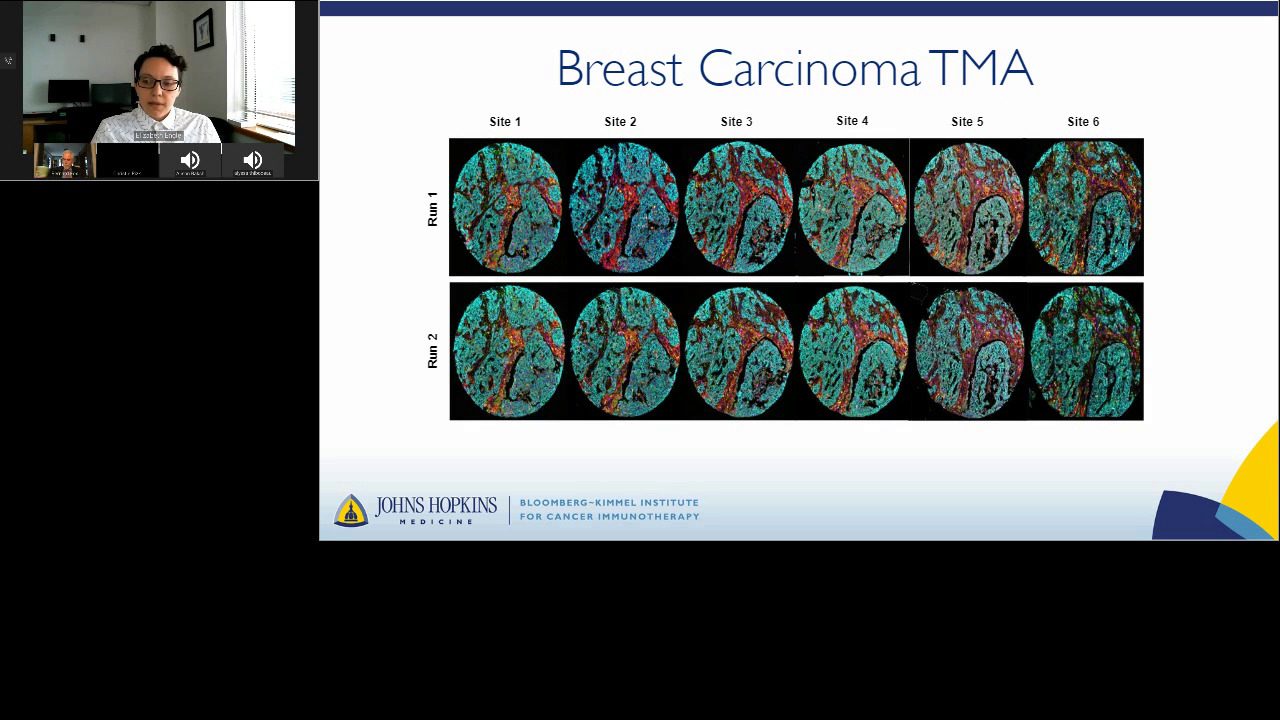
Speakers
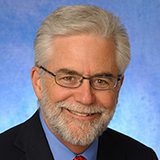
Bernard A. Fox, PhD
Harder Family Chair for Cancer Research, Robert W. Franz Cancer Center Earle A. Chiles Research Institute, Providence Cancer Institute
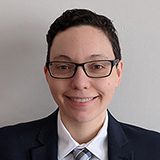
Elizabeth L. Engle, MS
Senior Laboratory Manager John Hopkins Hospital, Maryland
Deciphering the Tumor Immune Microenvironment and Therapeutic Vulnerabilities of Human Lung Cancer
In this webinar, Dr. Kurt Schalper discusses the immune composition and therapeutic implications in human non-small cell lung cancer (NSCLC), focusing on dominant immune evasion pathways and T-cell dysfunction. He presents results from studies using genomic and spatially resolved analysis of different cells types and targets/pathways that have shed light on the complexity of the tumor/immune cell interactions and their role in sensitivity and resistance to immunostimulatory anti-cancer therapies. He also discusses the potential application of these concepts for future biomarker development and novel treatment strategies.
Learning objectives:
- Discuss the role of the tumor microenvironment in tumor progression and therapeutic resistance.
- Learn about dominant mechanism of immune evasion and immunotherapy response in human NSCLC.
- Understand the current landscape of immunotherapy biomarkers and the contribution of spatially resolved analysis.
Video
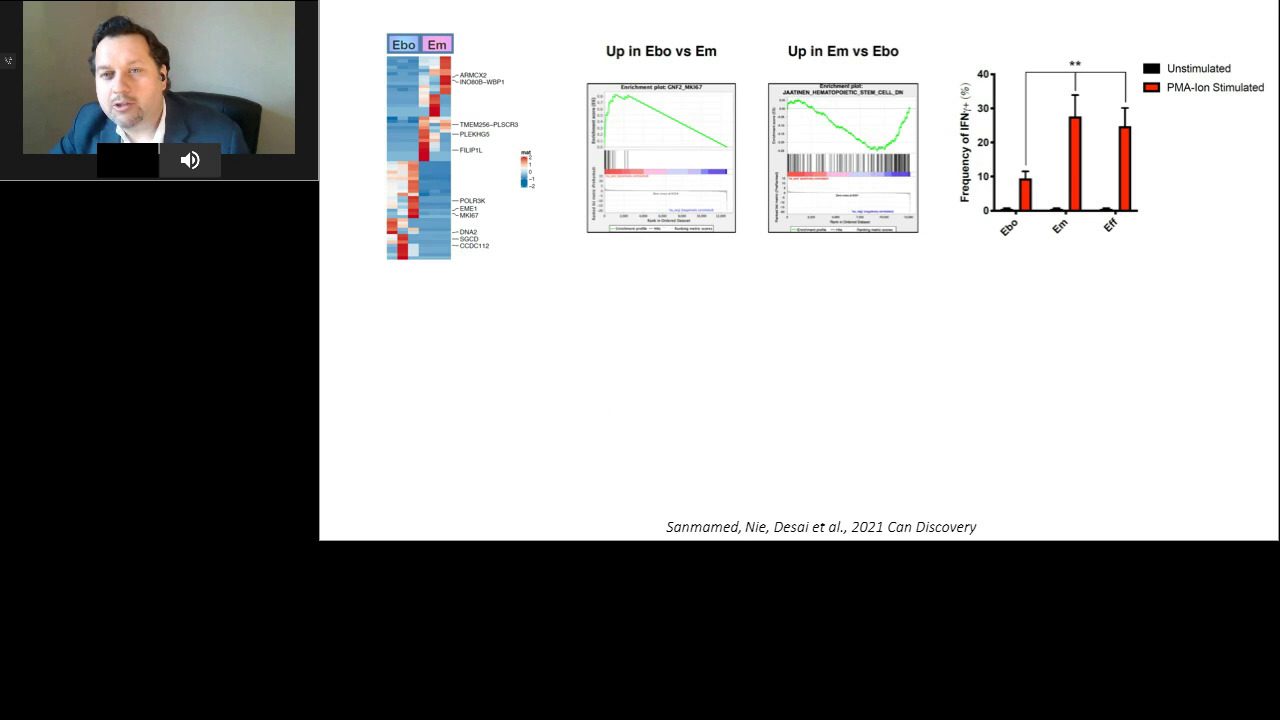
Speaker
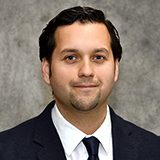
Kurt Schalper, MD, PhD
Assistant Professor of Pathology; Director, Translational Immuno-oncology Laboratory Yale Cancer Center
Spatial Biomarkers and Multiplex Immunofluorescence in Immuno-Oncology Panel Discussion
This multi-stakeholder panel discussion brings together a diverse set of experts who will highlight innovative solutions that demonstrate the integral role of spatial biomarkers in immuno-oncology. Learn about their advancements from biomarker discovery to translational research, and how they are shaping the future direction of the spatial biology field.
In this talk, attendees will:
- Gain an understanding of the current limitations of predictive biomarkers in immuno-oncology
- Become familiar with the different perspectives on the value and important role of mIF to improve biomarker strategies in immuno-oncology
- Learn about the future direction of spatial biomarkers in translational research & precision medicine
Video
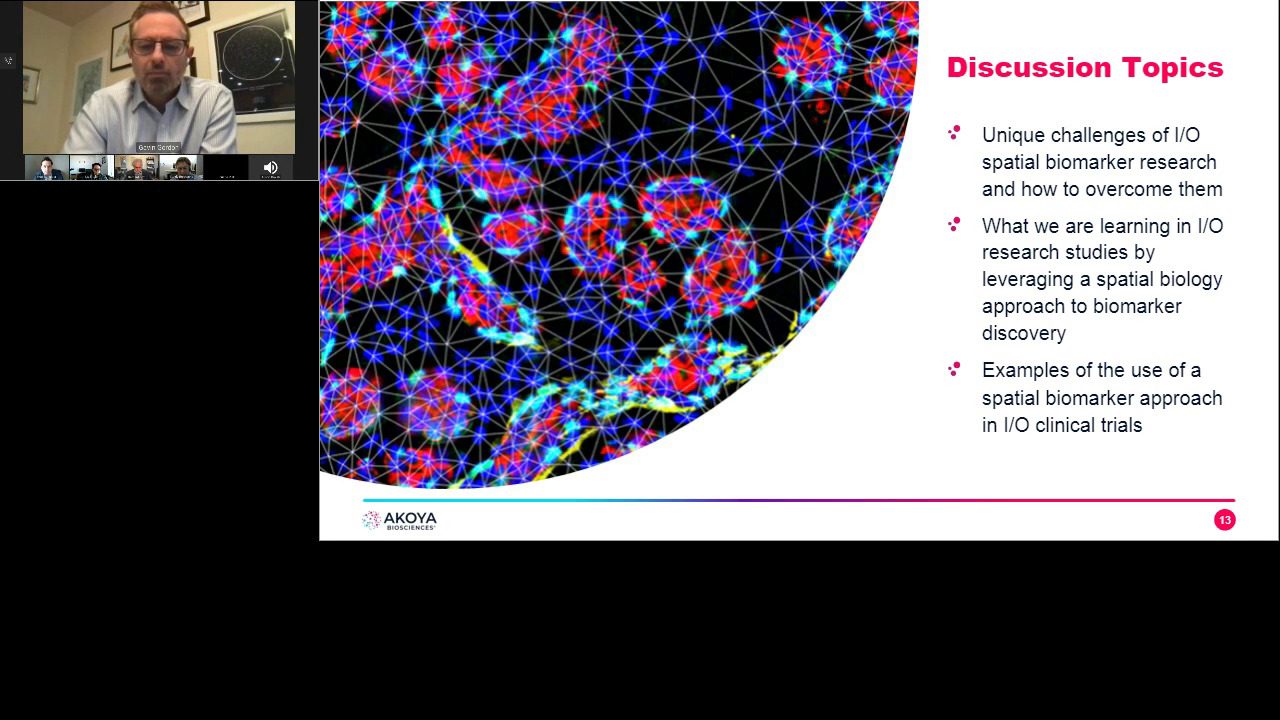
Speakers

Gavin Gordon, MBA, PhD
Moderator
Vice President, Clinical Market Development Akoya Biosciences
Vice President, Clinical Market Development Akoya Biosciences

Michael Campbell, PhD
Professor, Division of Surgical Oncology, University of California, San Francisco

Elizabeth L. Engle, MS
Senior Laboratory Manager John Hopkins Hospital, Maryland

“Sandy” Alexander Borowsky, MD
Professor, Center for Immunology and Infectious Diseases, Department of Pathology and Laboratory Medicine

Bernard A. Fox, PhD
Harder Family Chair for Cancer Research, Robert W. Franz Cancer Center Earle A. Chiles Research Institute, Providence Cancer Institute

Kurt Schalper, MD, PhD
Assistant Professor of Pathology; Director, Translational Immuno-oncology Laboratory Yale Cancer Center


